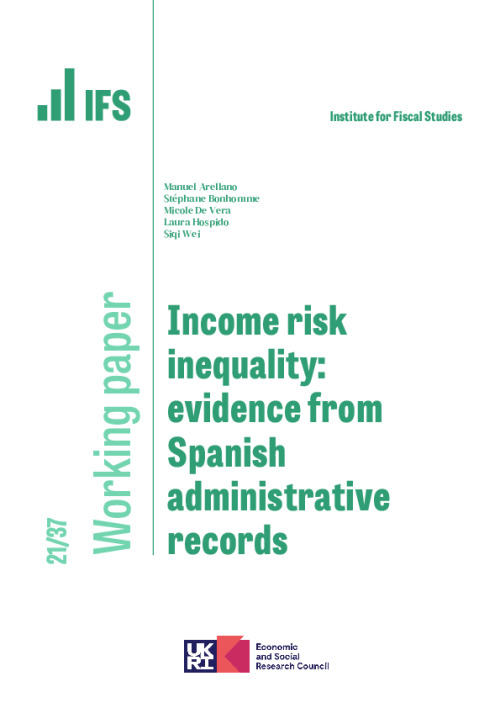Downloads
In this paper we use administrative data from the social security to study income dynamics and income risk inequality in Spain between 2005 and 2018. We construct individual measures of income risk as functions of past employment history, income, and demographics. Focusing on males, we document that income risk is highly unequal in Spain: more than half of the economy has close to perfect predictability of their income, while some face considerable uncertainty. Income risk is inversely related to income and age, and income risk inequality increases markedly in the recession. These findings are robust to a variety of specifications, including using neural networks for prediction and allowing for individual unobserved heterogeneity.
Authors

Research Fellow Centre for Monetary and Financial Studies (CEMFI)
Manuel is a Research Fellow of the IFS and a Professor of Econometrics at CEMFI, Madrid.

Professor of Economics University of Chicago

Micole De Vera

Laura Hospido

Siqi Wei
Working Paper details
- DOI
- 10.1920/wp.ifs.2021.3721
- Publisher
- Institute for Fiscal Studies
Suggested citation
Arellano, M et al. (2021). Income risk inequality: evidence from Spanish administrative records. London: Institute for Fiscal Studies. Available at: https://ifs.org.uk/publications/income-risk-inequality-evidence-spanish-administrative-records (accessed: 30 June 2024).
More from IFS
Understand this issue

Sure Start achieved its aims, then we threw it away
15 April 2024

How important is the Bank of Mum and Dad?
15 December 2023

Social mobility and wealth
12 December 2023
Policy analysis

How do the last five years measure up on levelling up?
19 June 2024

The Conservatives and the Economy, 2010–24
3 June 2024

A decade and a half of historically poor growth has taken its toll
3 June 2024
Academic research

The impact of labour demand shocks when occupational labour supplies are heterogeneous
28 June 2024

Income inequality in Ireland, 1987–2019
28 June 2024

Components of the evolution of income inequality in Sweden, 1990–2021
28 June 2024
